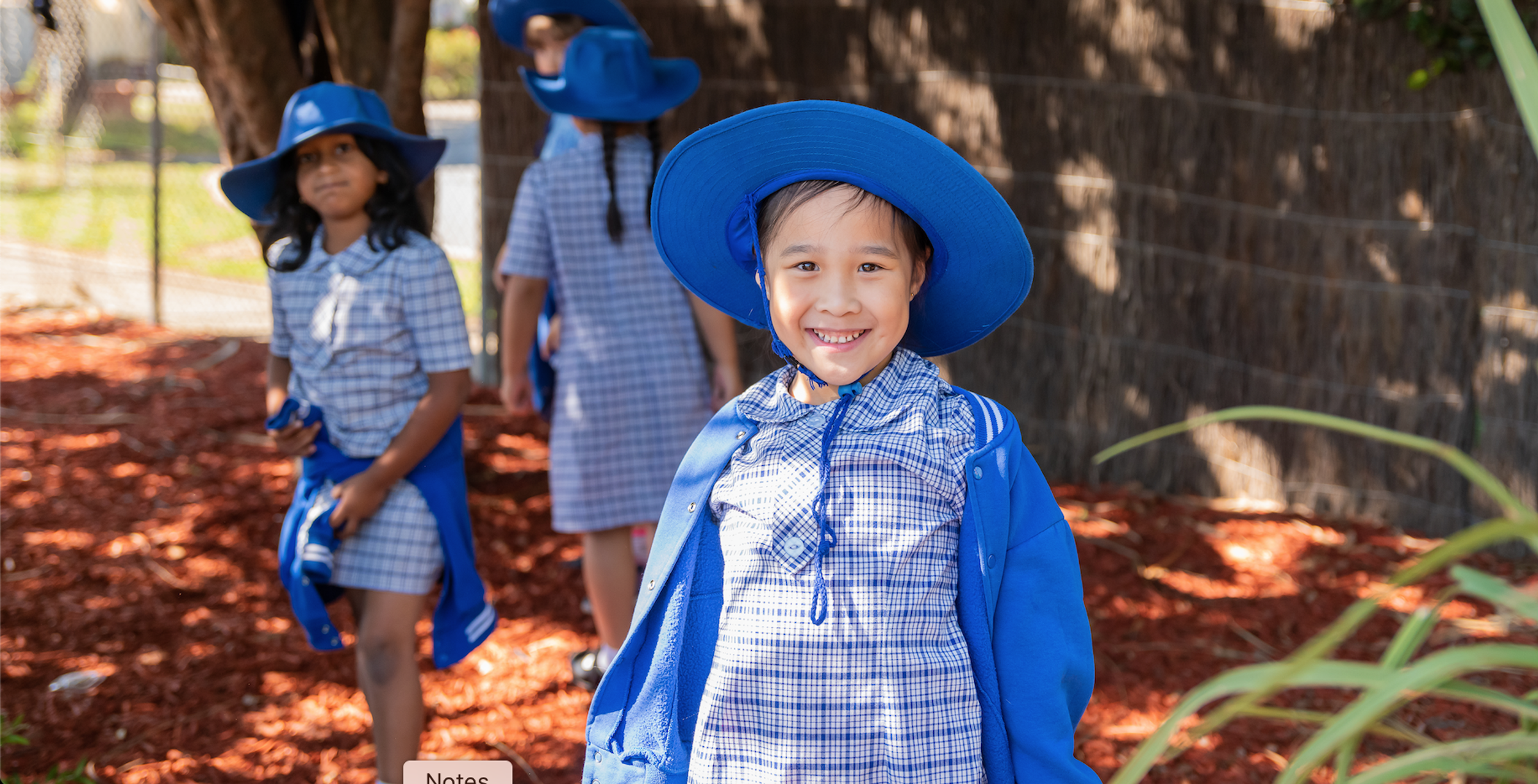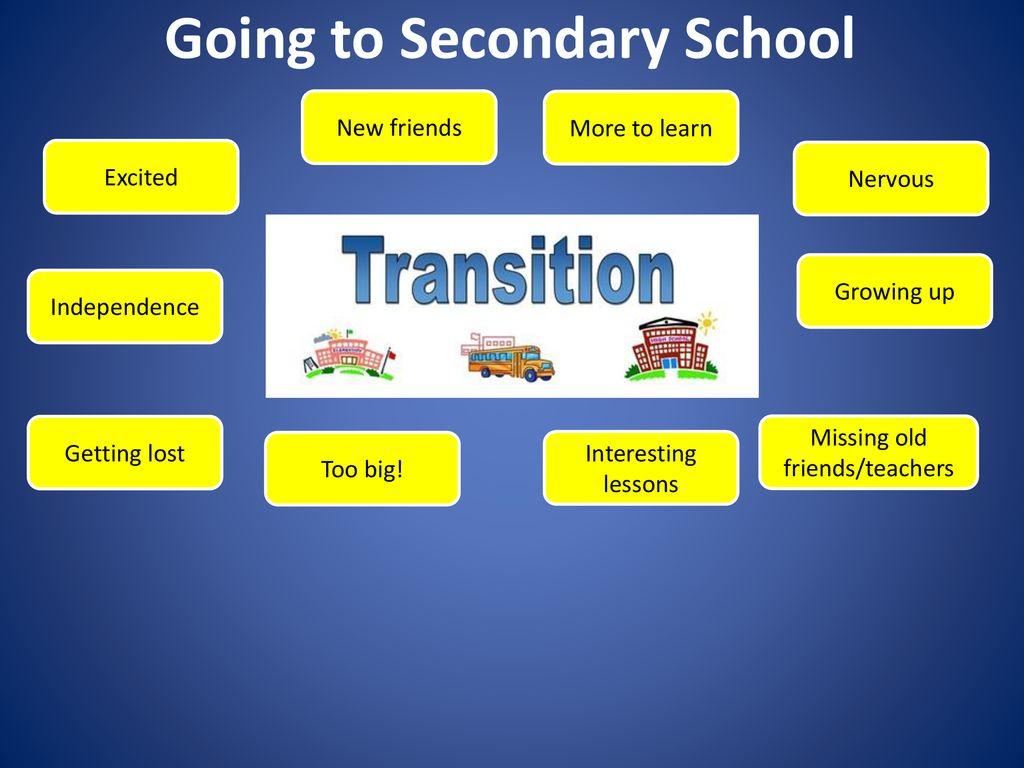Wellbeing

Do you remember your last day of primary school? How you felt - excitement at the thought of venturing off - becoming more ‘grown-up,’ perhaps a bit of anxiety at leaving a place of familiarity, feelings of indifference – just a part of life?
I remember my last day. The bell rang, and our year six teacher said goodbye. That was it. No graduation ceremony. No reflections of the past seven years. Just goodbye.
Even at 11, I knew that I would never see some of my classmates ever again (and I haven’t). I was going to an all-girls school, 40 km away from my home town. No one else from my school was going there. I was nervous. I wanted to go to the same school as my friends. However, my parents decided what they thought would be the best school for me. I didn’t question that – making those decisions was the responsibility of my mum and dad.
I was sad. I loved primary school. I went home and cried to myself in the backyard. Then the following January my new life as a secondary school student started and the next 7 years were great too.
But let’s rewind to year 6 and the feelings I had at that time. They were real, but I didn’t understand what they meant. As an adult, and as a teacher too, I now understand, and I realise that moving from primary to secondary school, is a big transition. It can be a time of fun, excitement and new experiences, but it can also be challenging or worrying for many children. It is the responsibility of the adults around them, primarily parents, to help make sure their child feels prepared and supported.
Commitment to supportive relationships is a school community priority, and as part of this priority, preparing the Year 6’s is a consideration at Holy Family. Providing information is not just about teaching them that timetables are different; there will be more homework, and that you have to become more organised. As a year 6 teacher, Lea Drury is assisting the children in understanding about friendships, new feelings, how to build a positive identity in a new environment.
Your child may be asking you questions, or they may not be. Guaranteed they will be feeling a range of emotions. I have included some information from the website, raisingchildren.net.au. for you to consider. Please remember, this transition may be minimal for you as an adult, but for your child, they may be experiencing a lot of different emotions and may require your insights and support.
GOING TO SECONDARY SCHOOL; WHAT TO EXPECT
Children often have mixed feelings about starting secondary school. They might be:
- excited about new friends, subjects and teachers
- nervous about learning new routines, making new friends or wearing a new uniform
- worried about handling the workload or not fitting in.
You might also worry about these issues, and about whether your child will have the confidence and skills to handle them. These worries are all normal. Secondary school also means a move from the familiar to the unknown, and a whole new way of doing things.
Relationships
Your child will need to meet new peers and make new friends and establish or re-establish her position within a peer group.
Schoolwork
Your child will need to adapt to new teaching and assessment styles, cope with a wide range of subjects, adjust to having different teachers in different classrooms, become more responsible for his own learning, manage a heavier and more complicated study and homework load, and learn a new and more complex timetable.
Getting around
Your child will have to adjust to a new school campus, find their way around, get to class on time with the right books and materials, and possibly cope with new transport arrangements.
When children are making a move to secondary school, you have the most significant influence on how smooth the transition is. Your child’s friends do influence how your child feels about the move, but your support has stronger and longer-lasting effects.
PREPARING TO START SECONDARY SCHOOL
You can help to ease any worries your child has about starting secondary school by preparing your child in the months and weeks before the term begins.
Practical issues
Here are some ideas for dealing with practical issues:
- Make sure your child goes to any secondary school transition and orientation programs in the last term of primary school.
- If your primary school doesn’t run a transition program, find out what transition services and supports your child’s new high school offers.
- Involve your child in decision-making where possible. For example, you could try talking together about transport options to and from school, and subject electives.
Feelings
Here are some ideas to deal with mixed feelings and worries:
- Please talk with your child about what /she’s most looking forward to and if anything is troubling them. Listen when your child shares their feelings and worries about secondary school. Reassure them that it’s normal to worry about going to secondary school.
- Encourage your child to look at the positive side of the move to secondary school. For example, you could highlight the new opportunities your child will have by talking about extracurricular activities your child could choose at the new school.
- Talk with your child about friendships. For example, you could ask what your child’s friends are saying about secondary school. You could also talk about how your child might keep in touch with old friends and make new friends at high school.
DURING THE TRANSITION TO SECONDARY SCHOOL
Practical issues
Here are some ideas to help with the practical side of the transition to high school:
- Try to arrange for a parent, grandparent or another close adult to be home before and after school for the first few weeks after your child starts secondary school.
- Find out the name of the teacher responsible for your child’s overall care, attendance and social and academic progress. This person might be called a home-room teacher, year advisor or pastoral care teacher. Try to introduce yourself as early as possible.
- Try to make your home as comfortable for study time as possible. For example, make sure your child has a quiet place to study, away from distractions like the TV or a mobile phone.
Friends
These ideas might help with worries about getting to know people and making new friends at high school:
- Reassure your child that it’s normal to worry about making new friends.
- Find out whether there’s a buddy system at your child’s new school and encourage your child to be involved in it.
- Let your child know that new friends are welcome in your home. Please encourage your child to invite new friends over, or be ready to transport your child to their houses.
- Help your child explore new opportunities. Learning a musical instrument, trying a new sport or joining a drama class are great ways for your child to meet new people and get involved in school activities.
Feelings
You could try these suggestions for handling emotional ups and downs:
- Be prepared for ups and downs. Adjusting to change takes time, but if things don’t stabilise after the first term, talk to your child’s homeroom teacher in the first instance.
- Remind your child that it’s normal to feel nervous about starting something new – for example, you could share how nervous and excited you feel when starting a new job.
- Talk to other parents to check whether your child’s experiences and feelings are similar to those of others. Sporting and school events are good opportunities to meet other parents.
- Try to make sure your child eats well, gets plenty of physical activity and gets plenty of sleep. The change to secondary school is likely to make your child more tired at first.
- Stay calm. If you’re calm and reassuring, you’ll give your child more confidence that she can get through the challenging parts of starting high school.
Connie Drossaert
Wellbeing Leader

